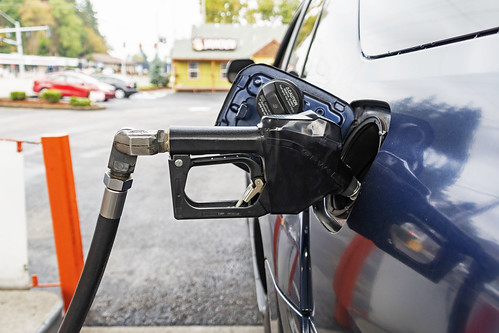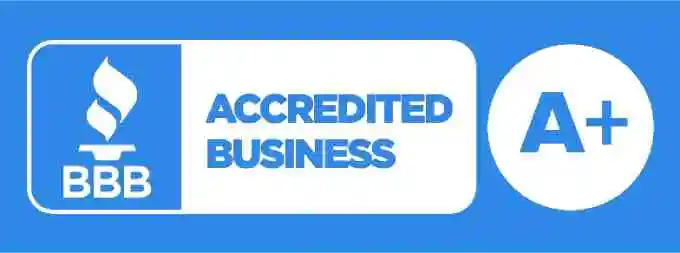Have you ever pulled up to a gas station in Illinois and wondered which fuel to use? Regular, midgrade, premium — what do those designations mean, and which type is right for your vehicle? Using the right gas in your car can maximize its performance and fuel economy, saving you money throughout your ownership.
In addition to taking care of your car, having the right auto insurance coverage can help you save money on car ownership. When it’s time for a new insurance plan, you can count on us at American Auto Insurance for your auto insurance needs. We’re an Illinois provider offering all types of insurance coverages, including cheap SR22 auto insurance.
What Is an Octane Rating?

An octane rating measures how much compression fuel can handle before it ignites. You can usually find a fuel’s octane rating on the pump at a gas station. In general, fuel with a higher octane rating can withstand higher compression, preventing it from detonating at the wrong time. If pre-detonation happens, you may hear a knocking noise in your engine. Over time, engine knocking can cause serious damage, resulting in costly engine repairs.
What Are the Differences Between Octane Ratings?
The octane rating refers to the octane concentration in the fuel. Premium gas has a higher concentration of octane, so it has a higher octane rating than regular gas.
At most Illinois gas stations, you’ll see three octane ratings when you fill up your vehicle:
- Regular: Regular gas has an octane rating of 87.
- Midgrade: A midgrade fuel has a rating between 88 and 90.
- Premium: Premium fuel has an octane rating between 91 and 94.
What Vehicles Need Premium Gas?
Like most vehicles on the Illinois roadways, your vehicle can probably use regular gas without a problem. However, certain types of vehicles, including luxury, sports, and performance vehicles, may need to use premium gas to increase their performance and efficiency. These vehicles have engines with a higher compression ratio or use supercharging or turbocharging. The increased pressure in the cylinders requires a higher-octane fuel to prevent pre-detonation.
Luxury automakers, such as BMW and Mercedes-Benz, often require premium gas in their vehicles. Some non-luxury cars with supercharged engines, such as the Chevrolet Corvette or the Ram 1500, can also require a higher-octane fuel. If you drive an older car and start to hear a knocking or pinging noise, it may also be beneficial to use premium gas. Fill up a few times with a higher-octane fuel and see if it eliminates the knocking.
Which Octane Fuel Should You Use in Your Vehicle?
You should use the type of gas the manufacturer specifies for your vehicle. When in doubt, look for a sticker on the fuel door or check your owners manual to find the recommended octane rating for your car. If you’ve lost the owners manual, many car brands provide digital copies of their manuals on their websites. You can also ask a service technician the next time you take your vehicle for an oil change or other routine maintenance.
Can You Use Premium Gas if Your Vehicle Only Needs Regular?
There’s generally no harm in using a higher-octane fuel than your vehicle requires. However, it won’t benefit your vehicle to use premium gas if it only needs regular. Premium gas usually costs up to 50 cents per gallon more than regular, so you could be wasting money when your vehicle doesn’t need it.
Can You Use Regular Gas if Your Vehicle Requires Premium?
While you can use a higher-octane fuel than your vehicle requires, you should never use a lower octane fuel. For example, if the manufacturer specifies a 91-octane fuel for your sports car, don’t use 87-octane regular gas. While using a lower octane fuel won’t usually harm the vehicle in the short term, it can decrease its performance and fuel efficiency. You may save money at first, but, over time, it can cost you more because lower octane fuel can damage the vehicle and reduce its life span.
Which Gas Should You Use if the Manufacturer Recommends Premium?
Some auto manufacturers may recommend premium fuel for certain vehicles, but they don’t require it. If the owners manual says “91-octane fuel recommended,” the decision is up to you. You might notice the difference in your car’s performance and fuel efficiency if you use premium gas. On the other hand, you can also fill up with regular unleaded gas to save some money.
If you’re still not sure which gas to use, you can try different octane ratings when you fill up. Monitor the fuel economy to see if premium gas provides better efficiency and pay attention to your vehicle’s performance, power, and speed as you drive. If you don’t notice any improvements with premium gas, it’s probably best to go back to regular.
Benefits of Using the Right Gas in Your Car
Auto manufacturers require gas with a specific octane rating for a reason — your vehicle performs at its best using the right gas. You’ll also increase the car’s fuel economy, saving you money at the pump. Keep in mind that some manufacturers may even require you to use the recommended fuel to maintain your warranty coverage.
Save Money on the Right Gas and Car Insurance
Just as using the right gas can protect your vehicle and save you money, choosing the right car insurance can have significant benefits throughout your vehicle ownership. American Auto Insurance is a leading provider of low-cost and SR-22 insurance in Illinois. We offer affordable full coverage insurance plans for all drivers, with no credit scoring. We can help with the entire auto insurance process, including answering your questions and providing cost-saving options. Call us today to get a quote and start saving money.
Gas pump by Oregon Department of Transportation is licensed with CC BY 2.0 DEED


